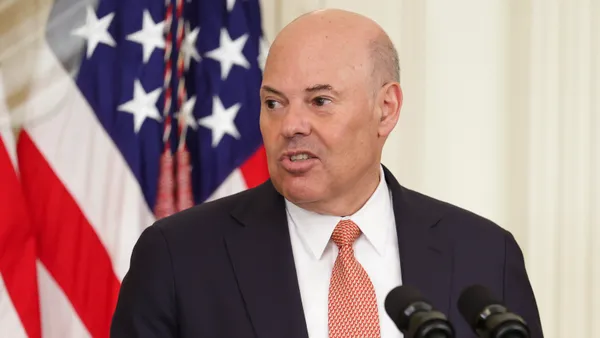Dive Brief:
- The employer behind Criminal Minds, a now-canceled, long-running CBS television show, is facing allegations that its director of photography sexually harassed employees for 14 years (Department of Fair Employment and Housing v. Walt Disney Co. et al, No. 20STCV19182 (Cal. Super. Ct., May 19, 2020)).
- California's Department of Fair Employment and Housing said in a lawsuit that Gregory St. Johns engaged in sexual harassment, discrimination and retaliation against male co-workers and that the defendants knew about those actions and did nothing to stop him. The state sought damages, front and back pay and relief including reinstatement.
- An ABC Studios spokesperson said in a statement emailed to HR Dive that the company works hard to maintain a work environment free from discrimination, harassment and retaliation; "In this instance the Company took corrective action. We cooperated with the Department of Fair Employment and Housing during its investigation, and we regret that we were unable to reach a reasonable resolution with the Department. We now intend to defend the asserted claims vigorously."
Dive Insight:
Hollywood has been at the forefront of the #MeToo and #TimesUp movements. USA Today reported in 2018 that, working with several women's groups, it had surveyed 843 women working in the entertainment industry about their experiences with sexual misconduct. Nearly all of the women who responded (94%) said they experienced some form of harassment or assault, often by an older individual in a position of power.
Of course, such claims aren't limited to the entertainment industry. The restaurant industry has similarly wrestled with such allegations, with many employers reportedly stepping up their responses in recent years: High-profile chefs were ousted, McDonald's launched an anonymous complaint hotline and others paid large settlements.
HR pros tasked with ensuring compliance with nondiscrimination laws must first make it known that misconduct will not be tolerated and take action against offenders, experts say. Improved and more regular training can help increase awareness of bias and harassment, but sources previously told HR Dive such efforts must include managers because of the role they play in making sure that misconduct is reported through proper channels. In addition, because many employees and witnesses say they're reluctant to report harassment and discrimination, enhanced reporting mechanisms may help.













